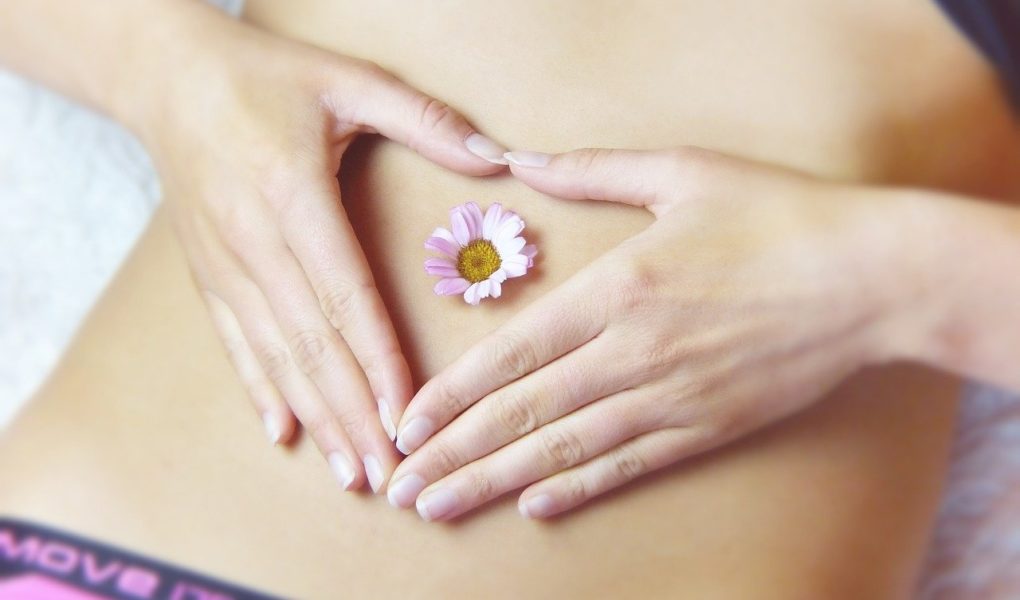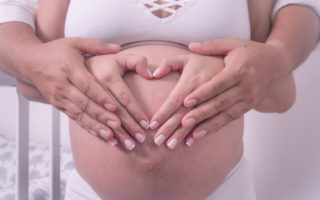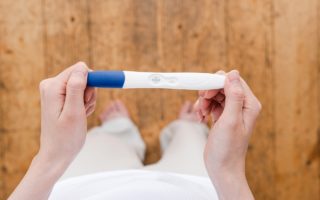It is normal and necessary to gain a few kilos during pregnancy – the only problem is that losing them afterward is difficult! Some tips will help you lose weight quickly while maintaining your health and feeling good. Let’s discover our tips for a successful diet after pregnancy.
During pregnancy, the body accumulates fat in the chest, buttocks, thighs, and hips. This is important for the development of the fetus and to nourish the baby after birth. So there is no way to go on a diet during pregnancy. But neither should you lose track of your weight without control.
Find out how you can lose weight through a healthy diet, regular exercise, and long-term care during pregnancy.
Table of Contents
Weight gain during pregnancy is recommended
For those who do not want to gain weight during their pregnancy, beware… It is impossible and, above all, dangerous. Weight gain during pregnancy should be reasonable and gradual: moderate in the first half of pregnancy (4-5 kg) and increasing in the second half.
The recommended weight gain is 12 kg, but this varies depending on your pre-pregnancy weight:
- “Slim”, weight gain of 12.5 to 18 kg is possible;
- “Normal”, from 11.5 to 16 kg;
- “Overweight”, from 7 to 11.5 kg.
A daily intake of 2000-2500 kcal should not be exceeded: an adequate food intake will contribute to a smooth pregnancy and will facilitate the recovery of the previous body weight. Second, quality is more important than quantity. Energy intake increases slightly during pregnancy: 2000-2500 kcal/day instead of the usual 1800 kcal.
Why do women gain weight after giving birth?
During your delivery, you lose about six to nine kilos. These include all that you have expelled from your body:
- The weight of the baby;
- The weight of the placenta;
- The weight of the amniotic fluid.
When your uterus recovers and returns to its original position (this can take several months), you can lose, on average, about one kilogram. However, excess weight often persists if you do not try to lose it, except if you follow a balanced diet.
After giving birth, fluid retention, which many new mothers suffer during pregnancy, can last for several weeks.
>>> KEEP READING – Pregnancy or desire to have a child: important vitamins and minerals
Postpartum diet: when to start?
Dieting is a delicate process. Pregnancy, childbirth, and the first weeks of your baby’s life put a lot of strain on your body. Therefore, it is best to reduce your energy intake gradually (1600-1800, then 1400-1600 kcal/day) and set modest but realistic goals (500 g to 1 kg per week).
Also, the young mother experiences an accumulation of hormonal changes and lifestyle adjustments, which lead to fatigue, emotional reactions, and sometimes even depression. So it is unnecessary to go on drastic or express diets and exhaust yourself. The important thing is to maintain your mental and physical health during this important stage of life.
Wait until you feel ready – don’t succumb to the pressure that society sometimes puts on you to go straight back to your old body. Pregnancy changes your body, that’s a fact. Some women want to return to their original weight, some don’t. The key is to take it slow.
Diet after pregnancy: what to do if you are breastfeeding?
You should never diet while breastfeeding: your baby needs the right amount of specific nutrients for its physical and mental development. If you are breastfeeding, it is, therefore, advisable to continue to follow your pregnancy nutrition during this period.

How soon can I lose weight after giving birth and what diet is effective?
You can lose weight quickly after giving birth, but it is not recommended! It is important to give yourself time to get back to your pre-pregnancy weight. It takes about two months for your uterus to return to normal weight and position, and about a year to return to your normal body weight.
You do not have to give up certain foods, otherwise, you will go into a deficit! Limit fats and sugars and emphasize fruits and vegetables, lean meat and fish, fat-free dairy products, and starchy foods, especially legumes.
Omega-3 fatty acids are excellent protection against baby blues. The best way to see life in pink:
- 1 tablespoon of walnut or canola oil a day;
- 1 handful of almonds, walnuts, or hazelnuts as a snack;
- Fatty fish 3 times a week.
>>> KEEP READING – My baby is 16 months old and doesn’t walk. Is this normal?
A typical day on the postpartum diet
The secret to healthy eating after pregnancy is a healthy, nutritious, and balanced diet. Whole grain bread, cheese, fresh fruit, hot drinks, raw vegetables, fish, starchy foods. Discover our breakfast, lunch, and dinner to help you get back on the road to a healthy body.
Breakfast
- Hot drink: tea or coffee without sugar;
- 2 slices of wholemeal or cereal bread lightly buttered or 30 to 40 g of cereals such as wholemeal petals or muesli;
- 1 low-fat cottage cheese;
- 1 piece of fresh fruit.
Lunch
- Raw vegetables without fat (with lemon juice or yogurt dressing)
- 150 g grilled or broiled meat or fish, 100 g cooked starch (pasta, rice, quinoa, wheat, etc.), some “green” vegetables of choice, 1 tablespoon oil
- 1 low-fat dairy or 0% cottage cheese;
- 1 piece of fresh fruit.
Dinner
- One soup ;
- 50-100 g white meat or fish with 1 tablespoon olive oil, steamed vegetables;
- 1 slice of wholemeal or cereal bread;
- 1 fresh fruit or 1 fruit purée with no added sugar.
If you feel hungry between meals, eat more vegetables. Limit foods high in fat and saturated fats, e.g. sauces, red meat, chips, fried foods, oils, etc. If you feel less motivated, stop feeling guilty and take a break: honey, jam, pancakes, a piece of dark chocolate (at least 70% cocoa), etc.
Exercise and sport after pregnancy: ask your doctor for advice
As soon as the perineal rehabilitation is done, a gradual return to sports (walking, gym, cycling, swimming…) allows to burn calories and to recover muscle mass. In short, to facilitate weight loss!
Before any exercise, you should :
- Ask your doctor for advice;
- Have done your perineal rehabilitation. The perineum muscles must have regained their strength to avoid the risk of incontinence or uterine prolapse.
Remember that exercise is only successful if done regularly: no need to start knocking yourself out by doing two hours of sports in a row. The key to success, as with dieting, is long-term consistency.



